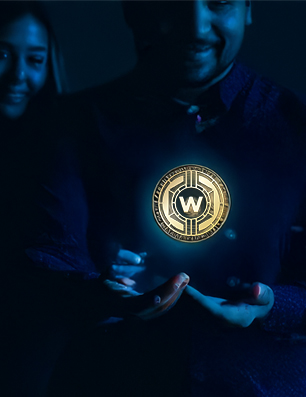- Written by: Insha Zia
- Fri, 03 Feb 2023
- United States
They say everything is possible in the metaverse, even interplanetary travel. So DailyCoin took a trip to Mars with MARS4. Continue reading MARS4 Comprehensive Review: Taking a Trip to Mars in 2023 at DailyCoin.
MARS4 Comprehensive Review: Taking a Trip to Mars in 2023
The metaverse is seeing a rise in adoption from users and institutions worldwide. Whether for regulation, work, or leisure. Accordingly, increased metaverse-related activities have made the shift to Web3 appear more imminent than ever. The governments of South Korea and the United Arab Emirates have announced their plans to digitize their metropolises into the metaverse, enabling people worldwide to visit and enjoy them. Other companies are already working towards this, with DecentWorld releasing its “Downtown Dubai” simulation last year before the UAE government’s announcement. Considering the drive for innovation from establishments worldwide, it is reasonable to infer that we may soon have metaverse equivalents of our metropolises. Similarly, the possibility of interplanetary travel in the metaverse is not out of the question. There are only so many metropolises the metaverse can digitize, which got DailyCoin thinking: why not inspect metaverse platforms mapped to other worlds? It’s not uncommon for metaverse platforms to build around fantasy realms. Still, some developers are working to create the worlds in our corner of the galaxy using data from NASA itself. We at DailyCoin decided to look at one such project, MARS4, to see what the outer-worldly metaverse has to offer. MARS4 is an interactive metaverse mapped to Mars. The metaverse is divided into land plots on Mars, each represented by a unique NFT. The platform utilizes a detailed 3D map of Mars’ terrain with data provided by NASA and other space agencies. The project presents itself as the Mars equivalent of the Google Earth 3D map. What’s unique about this project is that it is very interactive. Each Mars plot and its topographical form is a playable point of interest (POI) for the project’s native Play-to-Earn game, making the experience very immersive. Currently, the project is split into three interconnected parts: Mars Land NFTs, MARS4 token, and its Play-to-Earn game. Each element plays a vital role in the MARS4 ecosystem, adding to the experience. Seasoned veteran executives lead the MARS4 team, boasting years of experience building businesses, IT Products, banking and investments, and Web3. The project was co-founded by Tomas Martunas, an experienced Angel investor formerly of Goldfish Fund, and Paul Seras, a seasoned marketing and e-commerce executive who worked with Smart G. The project is spearheaded by CEO Richard Berno, who has ample experience building crypto startups like MARS4 from his role as a partner on Zen Capital and an advisory committee member for Iron Wolf Capital. MARS4 is partnered with numerous Web3 leaders, such as Illuvium, which acts as a principal advisor for the game. Ethereum Layer-2 protocol Polygon notably provides blockchain support for the project. The metaverse has attracted investment from numerous venture capitalists, including Vendetta, OKEx Blockdream Ventures, and Andromeda Capital. MARS4 has recently reached many crucial milestones, including support for Polygon and the addition of crucial in-game elements, such as in-game NFT sales, drivable NFT vehicles, and more, with full colonist customization set to be released soon. According to the project roadmap, the development team is currently working on expanding its building system, launching the Mac build of its game, and adding Colonist uniform customization in Q1 2023. From our brief inspection, MARS4 seems to have earned the trust of its community, having delivered on its promises in its roadmap thus far. MARS4’s LAND NFTs are the world’s first NFT land plots mapped to a geographically-accurate 3D virtual Mars based on data from credible space agencies. The size of each of the game’s 99,888 land plots measures 559 sq miles, giving players ample room to explore. Of the 99,888 land plots, 888 are classified as ‘Rare.’ Within these rare NFTs, 789 have been classified as Unique, 57 as rare, 34 as super rare, and eight as epic. The rest of the 99,000 plots are classified as standard NFTs. The NFTs work similarly to other digital real-estate NFTs, where players can rent, explore, colonize, or increase their value. Interestingly, each land has several benefits for its owners depending on its rarity. Here’s a quick rundown of the perks gained by landowners: An extensive list of benefits for landowners is discussed in the white paper for MARS4. The MARS4 game is a sci-fi PVE survival game similar in concept to The Martian, with a sprinkle of MMORPG elements. The game recreated the red planet in Unreal Engine 5, leveraging the engine’s capabilities to deliver high-resolution textures and more. The environment closely resembles the red planet, with exciting features like a day and night cycle, gravity, and random events like storms and electrostatic discharges, amongst other features. Unlike Matt Damon in The Martian, players must cooperate with other players, building the infrastructure and exploring the red planet. Moreover, players must survive the environment by min-maxing their resources, fighting against dehydration and hunger, cultivating food, gathering water, crafting tools, constructing bases, and so forth. It’s important to note that the game provides different experiences for Landowners and standard players because each has a different role. Land NFTs operate similarly to MMO Guilds, whereas the majority of the progress in the game is centered around building the LAND, hosting more players and colonists. Landowners have complete authority over the actions on their Land via The Land Governance System. This interface allows Landowners and Managers to assign tasks and decide how they will run the Land. Players can improve the land’s value by creating communities and boosting landowners’ passive income by completing tasks. Conversely, standard players are provided with Character NFTs or Colonists by default for free, with the ability to unlock more slots. After receiving their colonists, they can choose a role that suits them best. Currently, players can play as a Geologist, Miner, Driver, Engineer, Biologist, or Medic. Colonists could also explore different lands and expand their settlements by applying for jobs on different lands. This way, they can explore, work, and build on the land while earning rewards. I downloaded the game and patched it up to the latest version. My current PC specs rock an Nvidia GTX 1070 GPU, 16 gigs of RAM, and an i5 11400F. With these specs, I could run the game at max settings and truly enjoy the red planet. Getting into the game was simple. I just had to click ‘single player’ and was warped into a quest exploring the wreckage on Mars. The game is as realistic as it gets. While everything is reasonably foggy, the terrain features high-resolution textures with rocks, hills, and sand resembling Mars’ topography. I could loot crates, construct buildings, mine materials, and more. The game is similar to Minecraft but with better graphics. Yes, Minecraft with RTX does exist, but MARS4 can put up a competition without straining your PC. The character mechanics could be better if we were talking about critiques. My character couldn’t climb terrains, and the jump animation needs work, but it could be because of Mars’ gravity. I prefer my character climbing models and terrain, donning parkour-esque animations. It could be because I grew up playing the Assassin’s Creed series. However, I don’t think anyone can parkour on Mars or shout ‘parkour’ while jumping from one rock to another. In conclusion, MARS4 can compete with most AAA titles. The game’s overall mechanics, experience, and resource crafting are exciting and fun. Moreover, it could significantly improve by shifting to Unreal Engine 5 and leveraging its features, such as PathTracer. However, it’s not short on immersion and excitement with Unreal Engine 4. MARS4 is the platform’s primary token. Everything that can be bought, leased, and sold in the metaverse is done with the MARS4 token. The token has a max supply of 4 billion tokens and is currently trading at $0.00064 per token at the time of writing. It reached an all-time high of $0.089 in 2021 and is currently 99.3% down, according to CoinGecko data. Users can trade, power the ecosystem, and earn passive income with the MARS4 token. It’s readily available on SushiSwap, Bittrex, Mexc, PankcakeSwap, and KuCoin. The project’s tokenomics raise some eyebrows. According to the official tokenomics outline, MARS4 will put up only 5% of the token supply for public listing and 1% for the Community Round. Here’s a quick synopsis of the tokenomics: The public listing, community round, and vesting period have been completed as of this review. Currently, the MARS4 economy depends on new players to grow the game’s economy. The metaverse aims to be self-sufficient through its income sources and community pool while creating a fun, engaging, and play-to-earn metaverse for all astrophiles in the community. Here are the numerous ways red planet metaverse sustains itself and rewards its users: The metaverse and the Web3 gaming space are rapidly growing. The metaverse sector is expected to reach a total valuation of $1 trillion by 2025. At the same time, the Web3 gaming sector is projected to grow to $65 billion by 2027. Many projects, mainstream companies, and institutions are testing the waters in the space, which has led to an abundance of similar-themed projects and concepts. MARS4 inadvertently provides a fresh concept to the Web3 space with its metaverse and game, making it a solid prospect for players to visit and explore.What Is MARS4?
Recent and Future Developments, Partnerships, and More
LAND NFTs
MARS4 Game
Mechanics Overview
DailyCoin Game Impression
MARS4 Token
MARS4 Economy
On the Flipside
Why You Should Care






